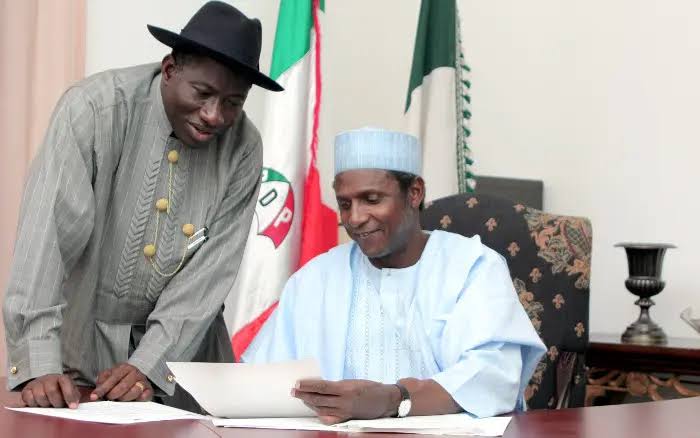The Nation
How Yar’Adua’s aide withheld letter meant to make me acting president – Jonathan

Former President Goodluck Jonathan has revealed that a critical letter intended to formally empower him as acting president during President Umaru Musa Yar’Adua’s medical leave in 2010 was deliberately withheld by one of Yar’Adua’s trusted aides.
In a recent interview with the Rainbow Book Club, which gained traction on Saturday, Jonathan shared that before leaving for medical treatment abroad, Yar’Adua had prepared a letter for the National Assembly to enable a constitutional transfer of power.
However, he said the letter never reached lawmakers because the aide assigned to deliver it refused to do so.
The incident plunged Nigeria into months of uncertainty, as there was no officially recognized acting president or commander-in-chief while Yar’Adua remained incapacitated.
READ ALSO:Why I apologised for criticising Goodluck Jonathan -Bello El-Rufai
Jonathan explained that although he continued to manage certain aspects of governance — such as chairing Federal Executive Council meetings and signing off on ministerial decisions — he lacked the legal authority to act as commander-in-chief without a formal handover.
He called the situation precarious and credited the National Assembly with invoking the “doctrine of necessity” to resolve the crisis by authorizing him to assume presidential powers despite the missing letter.
Jonathan said: “There’s always a balancing between North and South, Muslims and Christians. And Yar’Adua was a Northern Muslim, serving as president. He took over from a Southern Christian, Obasanjo, who ruled for eight years.
“Definitely the Northern Muslims wanted Yar’Adua to at least do eight years before power would return to the South, likely to another Christian. But his health issues came up and it was a problem. That’s why even allowing me to act as president became an issue.”
He added: “One year that Yar’Adua was going for the medical checkup. Actually, a letter was written. Of course, the constitution says that for the vice president to act, the president would send a letter to the Senate and the House of Reps informing them.
“That letter was written, but the person who the letter was handed over to, I will not mention the name to you now, was one of the aides of Yar’Adua, refused to submit the letter to the National Assembly. And Yar’Adua became so ill that he had no control of issues.”
Jonathan continued: “So we had a country where the president was not available, and there was no acting president. Yes, as a vice president, you can take over some responsibilities of the president. You know the president of Nigeria has two main responsibilities.
“First, you are the chief executive of the country, so like a prime minister of a country. That, the vice president can assume, you don’t need any transfer. And I was doing that because we were having an executive council meeting, we were approving memos from ministers, so the government was going on.
“But there was no commander-in-chief. What is the second responsibility of the president of Nigeria, besides being the executive head of the country? And there’s nothing like acting commander-in-chief. Either you’re a commander-in-chief or not.”
He drew a comparison with U.S. protocols: “But when you become an acting president, you are at the same time a commander-in-chief. So that was lacking, and no country allows that gap. A country like America, they don’t allow that gap at all.
“If an American president wants to, even if it’s a whitlow, that he requires an extension, that he will be off for five minutes, he will hand over to the vice president before that procedure. Immediately he regains consciousness, he takes over. But we stayed for some time.”
Jonathan concluded: “And that led to what they call the doctrine of necessity. When the National Assembly felt that the country was in a situation where it was not expected, they now have to initiate this doctrine of necessity. And they now made me to act as a president without a letter from Yar’Adua.”
Yar’Adua passed away in May 2010 following a prolonged illness. Jonathan subsequently completed the term and went on to win the 2011 presidential election.





















